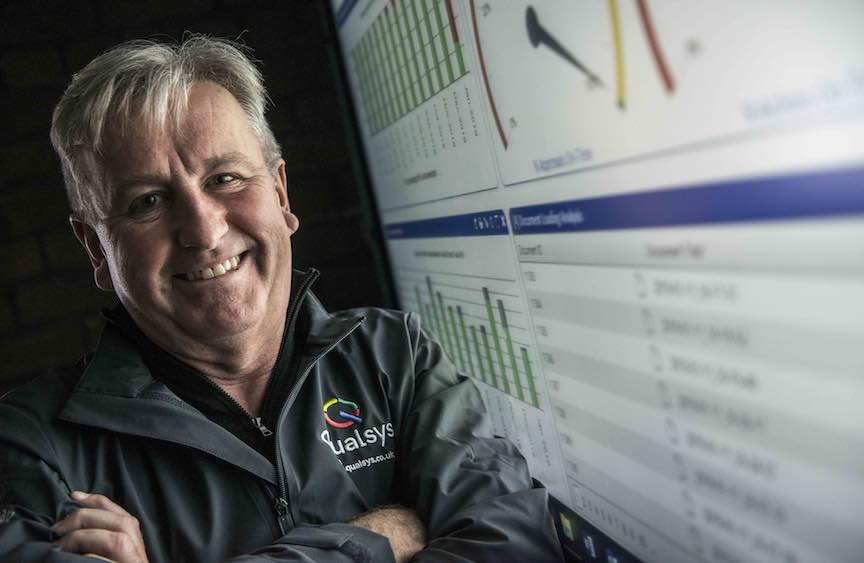
Mike Pound, managing director of Sheffield-based governance, risk and compliance software development and service provider Qualsys says the exchange rate has worked in his favour and he is now busy Brexit proofing his contracts and data storage
How has Brexit impacted your business so far?
Well, the exchange rate has helped us, particularly on the international contracts where we are roughly 20% cheaper than we were prior to the vote. We don’t actually import anything. While we are looking to actively sell abroad, all our resource is UK-based. So our cost base hasn’t moved, but our pricing has got relatively cheaper as a result of the effect on the pound over the last couple of years.
We grew by 70% last year, but we could have grown by 110%. We have a couple of larger UK operations that are delaying their investment decisions and I expect that it will take a quarter, depending on what happens over the next few days, for those decisions to get comfort value back to the people who have got to make them. Everyone is going to be a little bit cash wary over the next quarter.
Have you taken any steps to protect yourself from any potential downsides to Brexit?
We are not directly affected by Brexit itself because all our cost base is in the UK. There is a large degree of uncertainty about how Brexit is going to play out in practice, but we’ve got an international customer base already and we’ve been making sure that the contracts have been placed on our UK operation, so those contracts should be unaffected after any Brexit date. That includes large corporates like Sodexo, who are French-based, as well as international customers, such as Honeywell and Diageo.
If it’s confirmed that Brexit is going to occur and we actually get into the negotiation about the trade deal, which is the bit that will affect us, we’re looking at setting up a trading office within the EU to facilitate any trade in the EU. We’ve got a lot of trade with large companies in Ireland, so it would be likely that we would look to open in Ireland. It would be largely a trading office, the resource, and the product would still be developed in the UK, but having a presence in the EU would mean that it would be easy to contract directly without any considerations of tariffs, etc.
Potentially there could be problems accessing data held in an EU-based cloud storage system following Brexit has this impacted on any part of your business?
This is very relevant to us and people are very wary of it. We have been looking at platform options, mainly through Microsoft Azure, where people can get a guarantee about the location of the data storage – if it’s EU, UK, US, Canadian or wherever. Many companies are now offering guarantees about where they store your data.







